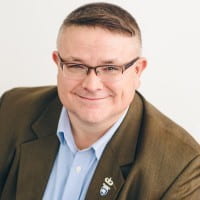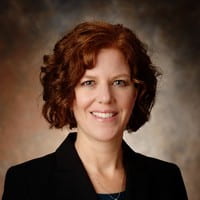LEAD
Alumni Share Their Post-Graduation Success Stories
by Paul Obidinski, J.D.
Recently, we reached out to several of our MPS Program Alumni to see what they’ve been up to since graduating from the program and to share some thoughts on how lessons learned from the MPS program have been useful in their careers. The following is a summary of some of our recent Alumni Perspectives:
Since Graduating from the MPS PSYLD Program, have you moved into a new role professionally and if so, can you describe how your MPS degree has assisted you?

Brendan Bagley, Class of 2018
“Yes, I have moved into a new role. The MPS degree assisted me in that I moved into an academic arm of the institution (the master’s helped). Additionally, the degree assisted me because the coursework embedded concepts of understanding motivation and, in this new role, I will work with a product that we want students to be motivated to use.”

“Since graduating from the MPS PSYLD program, I have had an influx of projects, authority and responsibilities. While I have always been very involved in my workplace, I have stepped up to a more strategic role. I now attend the leadership meetings, promote new ideas and help improve processes across departments.
I have used so much of the leadership studies I learned every day. I apply motivation techniques by incorporating reward systems. In my workplace we have been able to improve efficiency and productivity by analyzing processes and gathering information from the people involved to revisit and update. So, while my title hasn’t changed, my role in the company has. I continue to learn and adapt to the changes and help manage the flow of change. I have found myself sharing and coaching much more to my peers of all levels.
I think everyone may expect an immediate job title change but leadership is so much more than a title. The influence of a true leader doesn’t need a title. They can embrace any role and help their company and coworkers thrive. When you have ability to make connections and influence positive change in your workplace the role will automatically become what you make of it, as a leader. I know the MPS PSYLD gave me so many opportunities to show me and others the leader I really was already and gave me a chance to find how much better I can continue to improve to be. “

Joy Moxon, Class of 2019
“Shortly before I graduated from the MS PSYLD Program, I was promoted to the role of Director of Legal Services in my organization. In this role, I manage a global team of attorneys and legal professionals. My team’s mission is to help our organization meet its business objectives while mitigating legal risks and operating in accordance with the highest ethical standards.
I can’t say that the MPS degree itself directly contributed to my promotion, but it has nonetheless made all the difference for me. Before I began the PSYLD Program, I had a simplistic view of what leadership was, and I wasn’t sure I had what it took to be an effective leader. I looked around my organization, and I didn’t see many other leaders who looked like me (there weren’t many female executives in my organization) or behaved like me (the predominant leadership style of the company didn’t match my own). I wasn’t confident that I could lead successfully. Or, as I later learned to describe it in psychological terms, my sense of leadership self-efficacy was low.
The greatest value of the PSYLD Program for me was that it gave me the confidence I needed to lead. Through my studies, I came to understand that leadership is a process, and that there is no one-size-fits all type of leader. I learned that effective leaders use many different styles and behaviors to influence others, adapting their leadership to the needs of different followers and situations. I began to recognize some of my personal strengths as leadership strengths — listening, empowering and developing others, encouraging collaboration. As my confidence grew, so grew others’ confidence in me. Of course, overconfidence can also be a problem for leaders. In the PSYLD Program, I learned that leadership development is a lifelong process. Leaders can’t simply rest on their laurels once they reach a position of leadership. Rather, they need to check for blind spots and always strive to be better. I apply these lessons every day in my current role.”
If you have any questions for our Alumni on their perspectives, please feel free to contact Paul Obidinski, Professor of Practice, at peo104@psu.edu and we will reach out to our alumni to have any follow-up questions addressed.